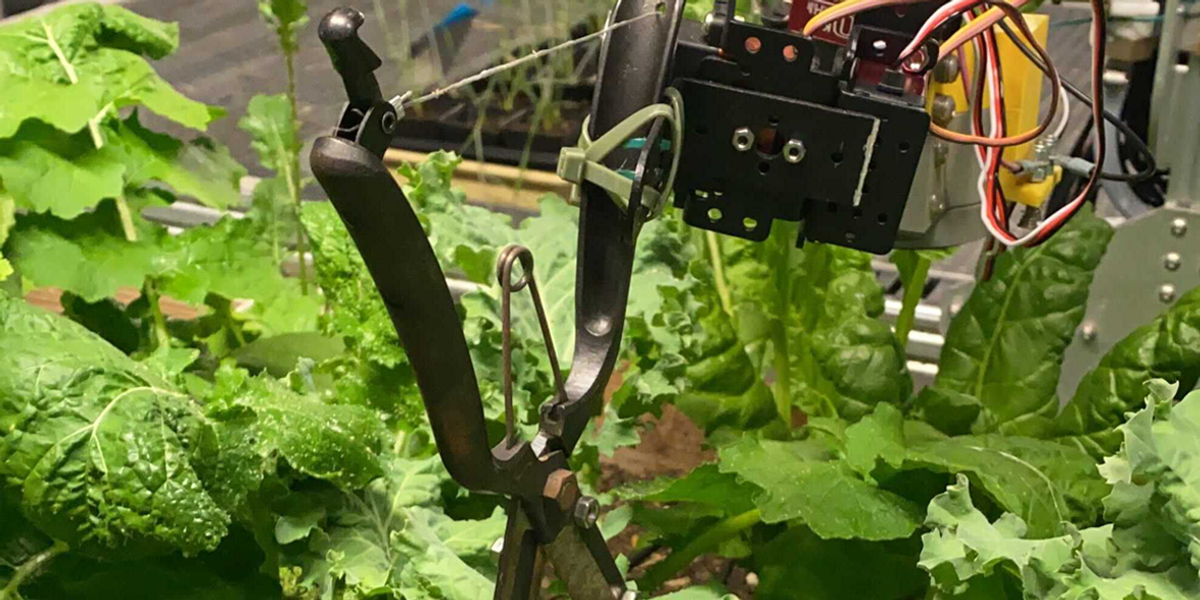**Robotic Gardeners: A Review of AlphaGarden from UC Berkeley**
I have a confession to make: I love plants, but I am not great at taking care of them. I have accepted this fact and have found a solution that works for me – robotic gardeners. These automated hydroponic systems take care of watering, nutrients, and even fake sunlight, allowing me to enjoy the beauty of plants without the guilt of neglecting them. And now, thanks to research from the University of California, Berkeley, it turns out that these robots may be just as good, if not better, at gardening than humans.
**The Evolution of Robotic Gardens at UC Berkeley**
UC Berkeley has a long history of exploring the intersection of robotics and gardening, dating back to the early ’90s. The latest innovation from the university is AlphaGarden, a combination of a commercial gantry robot farming system and AlphaGardenSim, a software program that guides the robot in maximizing plant health and growth. With features like a high-resolution camera and soil moisture sensors, AlphaGarden is designed to monitor plant growth and automate tasks such as seed planting, irrigation, and pruning.
**Polyculture Gardening and the AlphaGarden Experiment**
One of the unique aspects of AlphaGarden is its focus on polyculture gardening, where different plant species are grown together to mimic natural ecosystems. While polyculture farming offers benefits like pest resilience and improved soil health, it is more labor-intensive than monoculture farming. To test AlphaGarden’s performance, UC Berkeley researchers planted two farming plots with the same seeds and monitored the growth over two months.
**Results and Implications**
The results of the experiment were promising – AlphaGarden was able to maintain plant diversity and coverage comparable to a professional human gardener while using 44% less water. This efficiency in resource usage is a significant advantage, especially in a time where water conservation is crucial. The researchers concluded that AlphaGarden had passed the “Turing test for gardening,” indicating that it could perform at a level comparable to human gardeners.
**Future Directions and Considerations**
While the results of the experiment are encouraging, the researchers acknowledge that there is still room for improvement. They plan to further optimize the AlphaGardenSim plant-growth simulator to enhance water usage efficiency and explore other variables like artificial light sources. The cost of the hardware is also a consideration, as it may be a barrier for widespread adoption of robotic gardening systems.
**Conclusion**
In conclusion, the research from UC Berkeley on robotic gardeners like AlphaGarden opens up exciting possibilities for the future of gardening. While there are still challenges to overcome, the potential benefits in terms of efficiency and sustainability are undeniable. As someone who struggles with traditional gardening methods, I am excited about the prospect of having a robot companion to help me tend to my plants. The future of gardening may indeed be robotic, and I, for one, am ready to embrace it.
**References**
– “Can Machines Garden? Systematically Comparing the AlphaGarden vs. Professional Horticulturalists” by Simeon Adebola, Rishi Parikh, Mark Presten, Satvik Sharma, Shrey Aeron, Ananth Rao, Sandeep Mukherjee, Tomson Qu, Christina Wistrom, Eugen Solowjow, and Ken Goldberg from UC Berkeley. Presented at ICRA 2023 in London.

